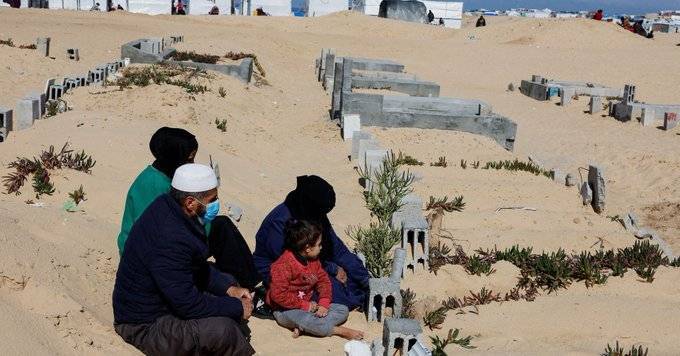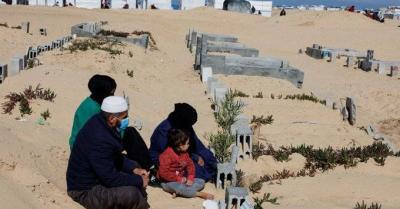Four sources reported that Egypt has begun to prepare an area along the border with the Gaza Strip that could be used to shelter Palestinian refugees if an Israeli attack on Rafah, in the south of the sector, leads to mass displacement across the border. The sources described this action as an emergency move by Cairo. Egypt has repeatedly denied any such preparations, while issuing warnings about the potential for the devastating Israeli attacks on Gaza to lead Palestinian displacement into Sinai, which Cairo considers completely unacceptable, echoing warnings from Arab nations like Jordan.
The United States has also repeatedly stated that it opposes any forced displacement of Palestinians from Gaza. According to one source, Egypt is optimistic that ongoing negotiations aimed at a ceasefire might prevent such a scenario but is nonetheless working to establish a border area as a precautionary measure. Three security sources said that Egypt has started to prepare a desert area and set up some basic facilities that could be used for housing Palestinian refugees, emphasizing that this is an emergency step.
The sources who spoke to Reuters for this report requested anonymity due to the sensitive nature of the issue. The Sinai Foundation for Human Rights, a non-governmental organization monitoring human rights conditions in the Sinai Peninsula, published images on Monday claiming to show trucks and cranes working in the area, along with photos of concrete barriers. The foundation quoted an unspecified source as saying that the construction is intended to create a "buffer security zone" in the event of mass Palestinian displacement.
Reuters was able to confirm that a part of the video shows Rafah based on the locations of buildings, trees, and fences matching satellite imagery of the area. However, it could not verify the complete location or the date the video was taken.
#### Relations with Israel Under Pressure
The United Nations Relief and Works Agency for Palestine Refugees (UNRWA) states that approximately 1.5 million Palestinians, over half of the population of the Gaza Strip, are currently in Rafah. Israel claims it needs to expand its attack to include Rafah to eliminate Hamas, which launched an attack on October 7, resulting in the deaths of 1,200 people and the abduction of 250 hostages, according to Israeli statistics.
With over 28,000 reported killed in the Israeli strikes on Gaza, according to health authorities in the Hamas-controlled region, the fate of those seeking refuge in Rafah has become a source of international concern, including among Israel's allies in the West. U.S. President Joe Biden reiterated to Israeli Prime Minister Benjamin Netanyahu on Thursday that any military operation in Rafah should not proceed without a well-structured and executable plan to protect Palestinian civilians seeking shelter there.
A U.S. State Department spokesperson stated, "The President made it clear that we do not support the forced displacement of Palestinians from Gaza. The United States does not fund camps in Egypt for displaced Palestinians."
Netanyahu's office has instructed the military to prepare a plan for evacuating Rafah, but no plan has been disclosed yet. In an interview with ABC News, Netanyahu suggested that people could move to areas north of Rafah that the military has cleared. Israeli Minister of Agriculture and Rural Development Avi Dichter stated on Wednesday that the evacuation is a "military matter" and that the Israeli army knows how to execute it. Dichter also noted in comments to Israeli army radio that "there is enough land to the west of Rafah," specifically mentioning the Mawasi area along the coastline, which the Israeli military said civilians should flee to early in the attack.
The conflict in Gaza has increased pressure on relations between Egypt and Israel, which signed a peace agreement in 1979. Ahmed Aboul Gheit, the Secretary-General of the Arab League and former Egyptian foreign minister, stated earlier this week that Israeli actions threaten the continuity of agreements with Egypt and Jordan, referring to the peace treaties with the two Arab nations. Egyptian Foreign Minister Sameh Shoukry said on February 12 that Egypt has maintained the agreement for 40 years and will continue to do so as long as both sides adhere to it.




